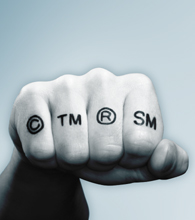 The intellectual property question of ownership of material submitted to social media sites is heating up as corporate acquisition talks for YouTube and other startups catch fire. Interestingly, you don’t own the rights to material you submit to video contests, or to YouTube, but you do own the rights to coding you do at Second Life.
The intellectual property question of ownership of material submitted to social media sites is heating up as corporate acquisition talks for YouTube and other startups catch fire. Interestingly, you don’t own the rights to material you submit to video contests, or to YouTube, but you do own the rights to coding you do at Second Life.
As Mark Cuban ever so succintly puts it: “The copyright shit is going to hit the lawsuit fan.”
The market for real goods created from the digital objects coded in virtual reality could be enormous in a virtual world like Second Life, where the creators own the rights to the objects that they make, Michael Buckbee told Wired
Robin Good says of participatory sites like YouTube, MySpace:
“While paying lip service to the democratic, free sharing of information, then, services like YouTube reserve the right to co-opt, edit, repackage and sell on the citizen produced media that they distribute. Likewise, sites such as MySpace gather information on their users to use in future marketing campaigns, or sell on to interested parties. The choice of which service you use to distribute your homemade productions can, then, have a huge impact on how they are accessed and who has control over them, not to mention the ways that they might be swamped in advertising, sidelined by sponsored content or used to promote products and services entirely beyond your control.”
Good says the issue is corporate control of online media, but really, it’s even bigger than that. The issue is reminiscent of the early days of recorded music, film and television, when artists signed contracts giving up their rights to the money earned from their creations. I’m constantly astounded at the quality work that people are willing to do for free in hopes of achieving a wide audience and the fame and fortune that can come with that (or not.)
New media provides new tools that equal the playing field somewhat, allowing individuals to create remarkably professional videos and code, but the little guys still don’t have access to legal advice to protect them from exploitation. Watch this one closely.








gee ya think?
http://theheadlemur.typepad.com/ravinglunacy/2006/07/you_tube_i_dont.html
http://theheadlemur.typepad.com/ravinglunacy/2006/05/all_you_can_upl.html
http://theheadlemur.typepad.com/ravinglunacy/2006/01/blogs_copyright.html
http://theheadlemur.typepad.com/ravinglunacy/2006/01/copyright_on_th.html
http://theheadlemur.typepad.com/ravinglunacy/2005/10/google_the_new_.html
Yup, I do. And like I said, the issue is heating up. Thanks for all the links. Much appreciated.
BL
“I’m constantly astounded at the quality work that people are willing to do for free in hopes of achieving a wide audience and the fame and fortune that can come with that (or not.)”
Tell us more. When do you think people should do stuff free as part of marketing – and when shouldn’t they?
I feel YouTube deterred many lawsuits as they are not profitable. Google becoming the parent company will change all that and the lawyers will have fun.
While all this is happening, the founders of Skype and Kaaza are working on “Project Venice” which will provide a sharing platform for TV shows and films in near DVD quality. The interesting thing is that they are involving the content owners. For more, see http://www.ipexecsearch.com/blog